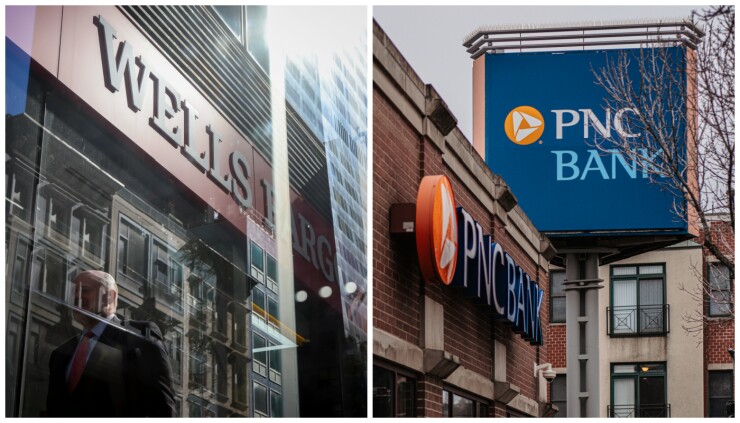- Key insight: Large banks continue to battle with some data aggregators over screen scraping of customer data.
- What's at stake: Screen scraping puts consumer security and fraud detection efforts at risk, the bankers say.
- Forward look: Expect new data aggregators to sign API agreements with banks.
Source: Bullets generated by AI with editorial review
Wells Fargo has asked Trustly, a Stockholm-based data aggregator, to stop screen scraping the bank's customer data and to not use the bank's logo to do so. Wells Fargo and PNC have asked Trustly to talk to or work with Akoya, the data-sharing vendor they use, to consume the banks' data through application programming interfaces instead of screen scraping. Trustly did not respond to a request for an interview or comment.
This is the latest episode in the data-sharing struggle between banks, fintechs and data aggregators that has been going on for
Banks started objecting to this activity, complaining it blocks their servers and messes with their fraud detection systems. In turn, fintechs at times have complained that banks were blocking them from access to customer data.
In September,
"We're in discussions on it," said William Demchak, chairman and CEO of PNC, during the bank's second-quarter earnings call. "I applaud what JP did. I think they're exactly right. I think there's a big cost to keeping this data secured and producing it in a form that's readable for our clients."
In 2020, several banks, including
So when security teams at Wells Fargo and PNC that monitor customer activity saw that Trustly was aggressively screen scraping, alarms went off.
"Newer aggregators try to obfuscate their traffic to make it look like it's coming from a consumer," said a bank executive familiar with the matter. "When we see that, we say there's a better way, we recommend using a standard API."
In the two cease-and-desist letters Wells Fargo sent Trustly in early and mid-October, which were reviewed by American Banker, the bank demanded that the company stop screen scraping and discontinue use of its trademarked logos. Since then, Trustly has stopped using the bank's logos, but continues to screen scrape the bank's customers' data, according to people familiar with the matter.
Trustly provides a "pay by bank" service that lets customers conduct transactions directly from their bank accounts. Its customers include Coinbase, MoneyGram and Western Union. Trustly has a relationship with Akoya and has an API, according to people familiar with the matter. It is unclear why it is screen scraping rather than using an API for Wells Fargo and PNC bank customers. In a comment letter on the 1033 data-sharing rule the CFPB published last year, that the agency's new leadership is rewriting, Trustly called screen scraping a "risky practice."
Sometimes fintechs prefer screen scraping because they want to obtain data that is not covered by an API. By screen scraping, they can obtain virtually any customer data they want, whether or not the customer has given permission to obtain it.






